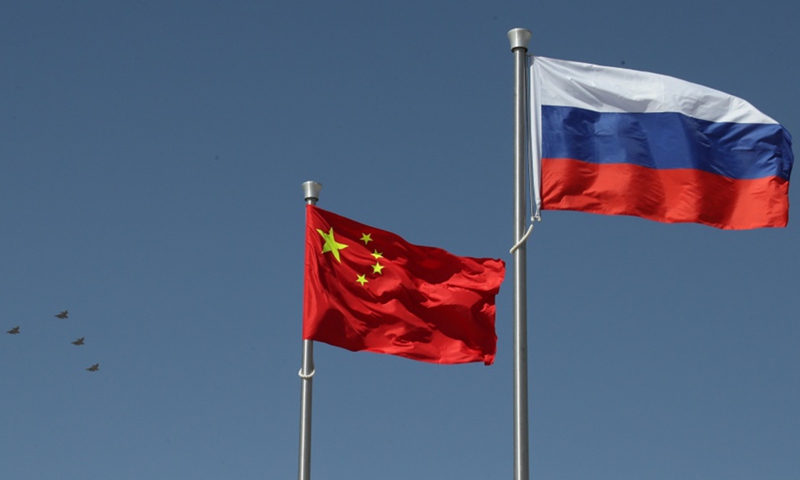
China-Russia relations. Photo: eng.chinamil.com.cn
China's top legislator Li Zhanshu will start a four-nation trip later this week, which includes a visit to Russia, where he will attend the 7th Eastern Economic Forum (EEF), according to an announcement on Sunday. The attendance at the EEF, a major Russian platform to promote global and regional cooperation, demonstrates the firm ties and close cooperation between China and Russia amid rising global geopolitical tensions, experts noted.
Li, chairman of the National People's Congress Standing Committee, China's top legislative body, will also visit Mongolia, Nepal and South Korea during the trip scheduled for September 7-17, according to the Xinhua News Agency.
This marks the first official overseas trip for Li since the start of the COVID-19 pandemic, though he frequently held talks with foreign leaders via video links, according to media reports. A list of official overseas visits by Li on people.com.cn showed the top legislator's last foreign trip in late September 2019 was also to Russia.
The planned visit to Russia and the attendance at the EEF highlight the firm ties between China and Russia and their close cooperation on global and regional affairs as well as in economic and trade fields, experts said.
The EEF is a very important economic forum for Russia, and Li's attendance at the forum fully demonstrates the importance the two countries attach to their bilateral ties, Gao Fei, a professor of Russian studies at the China Foreign Affairs University, told the Global Times on Sunday.
No matter how the international situation changes, the comprehensive strategic partnership of coordination between China and Russia will not change, Gao said, noting that such firm bilateral ties help provide a sense of certainty and stability to the world in the face of great changes unseen in a century.
The EEF is scheduled to be held from September 5 to 8 in Vladivostok. Its theme this year is "On the Path to a Multipolar World," according to the official website of the forum.
In a message to the forum, Russian President Vladimir Putin said that "the obsolete unipolar model is being replaced by a new world order based on the fundamental principles of justice and equality, as well as the recognition of the right of each state and people to their own sovereign path of development. Powerful political and economic centres are taking shape right here in the Asia-Pacific region, acting as a driving force in this irreversible process."
Experts said that the forum will likely focus on promoting multilateral cooperation, as the US-led West is recklessly playing zero-sum geopolitics that have seriously undermined global stability and development.
"China and Russia have a lot in common. We have a common understanding that the present world should be reconstructed in a more stable way. We think that there should not be centralized control over the world. We are talking about multipolarity. In this way, we are very close," Alexey Maslov, director of the Institute of Asian and African Studies of Moscow State University, told the Global Times.
Chinese Ambassador to Russia Zhang Hanhui told the Global Times in a recent exclusive interview that the growth of developing countries and emerging markets represented by China and Russia has driven the adjustment of the international landscape in terms of speed, breadth, and depth. It is changing the global political and economic landscape in an all-round way and pushing the international political and economic landscape toward multipolarity, Zhang said.
Despite the West's intensifying efforts to sabotage China-Russia relations, the two countries have forged stronger ties and have achieved a series of groundbreaking, pioneering, and institutional outcomes in recent years.
Trade between China and Russia in 2021 reached $146 billion, a jump of 35 percent from the previous year. As of May 2022, China and Russia established 154 pairs of sister cities and provinces, and dozens of economic and trade sister provinces. The two sides have also jointly promoted cooperation under the Shanghai Cooperation Organization, BRICS and other multilateral mechanisms.
In terms of military cooperation, China has sent some of the most powerful main combat equipment units of its army, navy and air force to the Russian Vostok-2022 exercises, whose maneuvering phase officially started on September 1. This is the first time the PLA has sent three of its forces - the Army, the Navy and the Air Force - to participate in a single Russian drill. The participation of the three forces and the main combat equipment displayed the depth of China-Russia military cooperation, as the drills will deter uncertainties and contribute to peace and stability in the region, analysts said.



